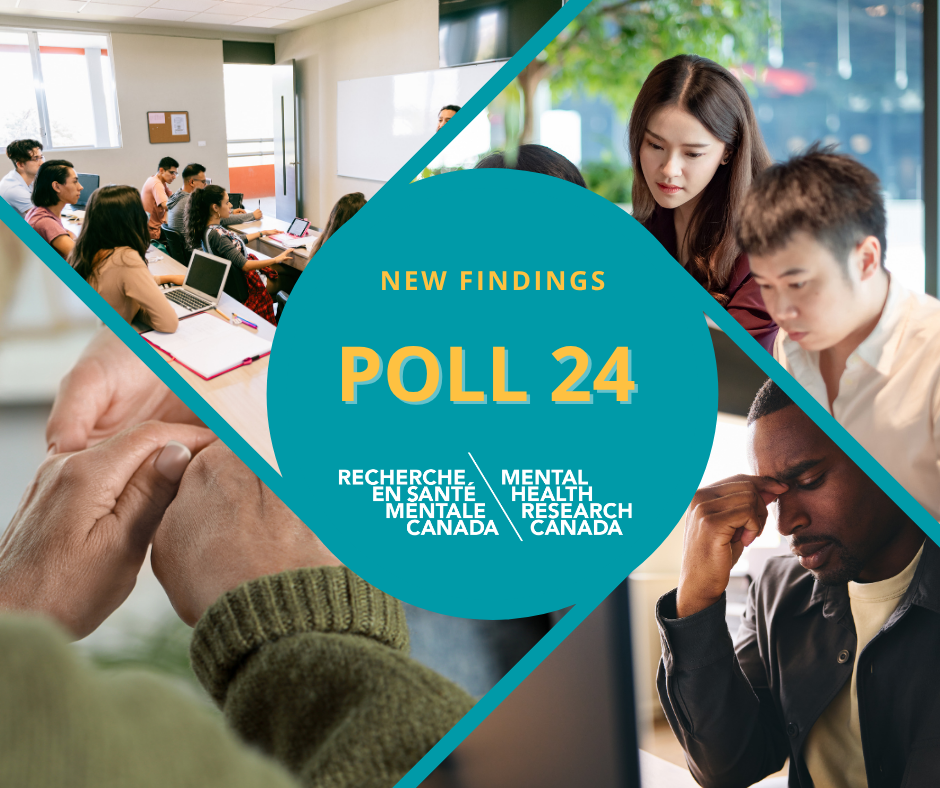Findings of Poll 24
Read the full reports:
ABOUT THE STUDY
This study was conducted by Pollara Strategic Insights with an online sample of 4,674 adult Canadians between May 1 to 15, 2025. The results from this study provide insights into the mental health of Canadians and reveal concerning trends. Results from a probability sample of this size could be considered accurate to within ±1.4 percentage points, 19 times out of 20. Results have been weighted based on age, gender and region to be representative of the Canadian population.
A series of research briefs that provide an in-depth, specific investigation of our polling results can be found here. Results of earlier polls are compared when applicable.
Findings from our polls are searchable on our free Data Portal.
Our latest report highlights how caregiving responsibilties, financial strain, and personal screen time continue to affect Canadians’ mental well-being, while underscoring the urgent need for tailored mental health supports.
Key findings include:
Caregiver Burnout and Stress:
Almost half of Canadians (47%) are managing caregiving responsibilities within their networks - including parents to children under 18 years old, elderly individuals, or people with special needs - and they report significantly higher rates of burnout (31%), financial stress (40%), and unmet mental health needs compared to those without caregiving duties.Mental Health Challenges Disrupting Daily Life:
Nearly one in three Canadians (31%) say their mental health is significantly affecting their work or studies. This rises to 48% among students, with notable impacts on attendance and productivity.Economic and Political Pressures Taking a Toll:
More than a third (38%) of Canadians report U.S. tariffs are negatively affecting their mental health, citing rising living costs, financial losses, and job insecurity as contributing factors.Personal Screen Time Linked to Poorer Mental Health:
Canadians spending six or more hours a day on personal screen time are three times more likely to report severe anxiety and depression than those with lower screen use, a trend especially pronounced among younger adults.Access to Care and Persistent Disparities:
While overall access to mental health services declined this quarter, disparities remain particularly stark for 2SLGBTQIA+ communities, with nearly half (47%) experiencing moderate-to-severe depression and 28% reporting suicidal thoughts , double the national average.

